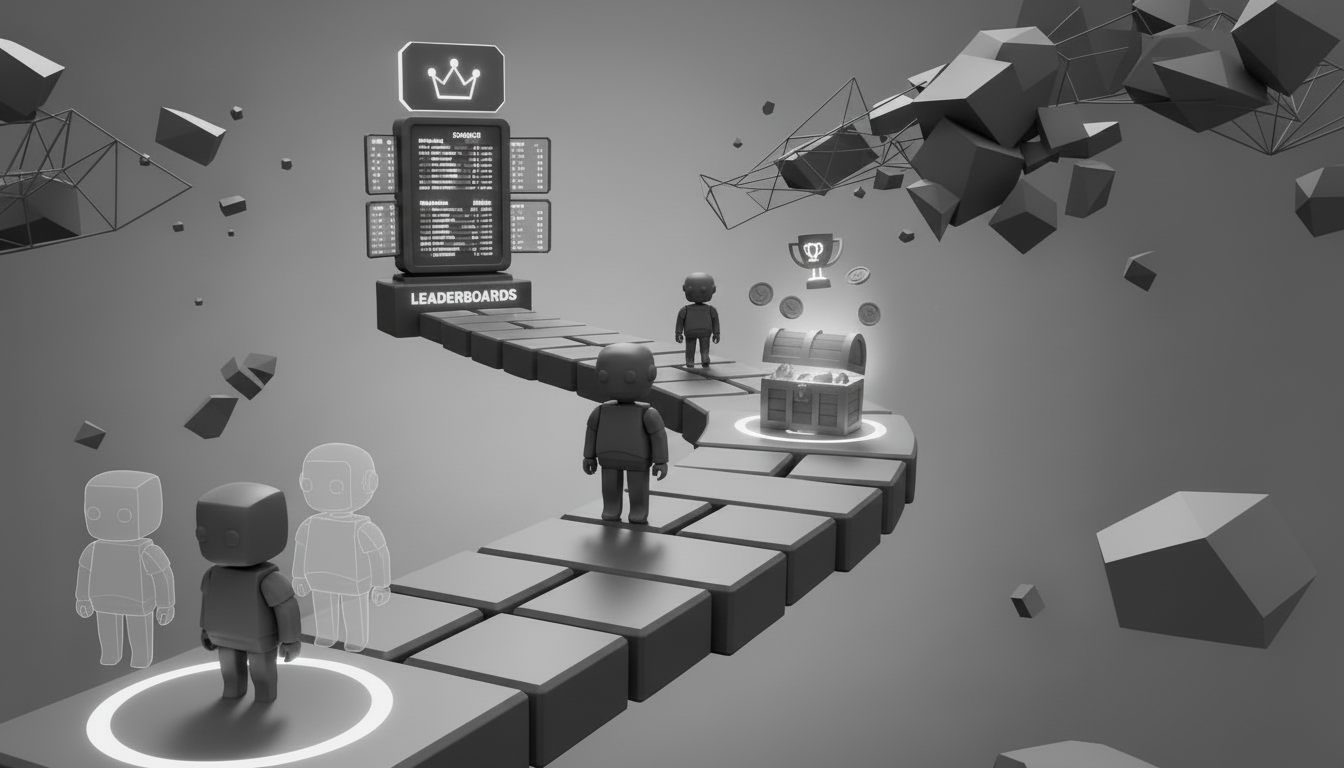
Serious games: transforming learning experiences

What is a Serious Game?
A serious game is a tool that combines learning objectives with fun elements. This approach makes learning more dynamic and engaging. By incorporating game mechanics, serious games aim to motivate learners and help them acquire knowledge faster.
Serious games are distinguished by their ability to simulate real-life situations, offering an immersive experience. For example, a company can use these games to train its employees in crisis management, by reproducing complex scenarios in a secure environment.
Benefits include:
- Improved engagement
- Stimulation of critical thinking
- Development of practical skills
This innovative teaching method is particularly effective in encouraging active learning and strategic thinking.
The learning objectives of a Serious Game
Serious games have several learning objectives that enrich the learning experience. They help to develop a variety of skills, both technical and behavioural, through fun immersion. Participants can test their knowledge in a safe environment, encouraging learning by doing without real consequences.
Serious games help to boost learners’ motivation and commitment. Here are some of the key objectives they aim to achieve:
- Disseminating knowledge: conveying information in an interactive and memorable way.
- Practical training: simulating realistic scenarios to apply skills.
- Raising awareness: tackling complex issues (such as the environment or diversity) in an immersive way.
By integrating these games into a training programme, we can guarantee a modern and effective approach that is adapted to the needs of today’s learners.
The role of Serious Games in digital learning
Serious games play an essential role in digital learning by transforming training into an immersive and engaging experience. These games combine fun aspects with learning objectives, making the acquisition of knowledge more attractive.
Thanks to their ability to simulate real-life situations, they offer learners the opportunity to develop problem-solving and strategic thinking skills. For example, a serious game about preserving the environment can raise employees’ awareness of ecological issues while encouraging them to discover innovative solutions.
Serious games also promote collaborative learning by encouraging interaction between players. Global learning leaders can use them to adapt their methods to the specific needs of each employee, ensuring more personalised and effective training. This fun, interactive format stimulates employee commitment and motivation, improving their professional performance.
Serious Games in employee training
Examples of Serious Games in companies
Mailinblack – Microlearning on cybersecurity: Mailinblack worked with Emeraude to develop a serious game to raise awareness of cybersecurity. This 2D microlearning game, targeting 2 million users, assesses knowledge on key subjects such as passwords and phishing, and redirects participants to appropriate training courses according to their score.

Dior – Gamified HR onboarding course: This gamified HR course designed by Emeraude aims to improve the integration of new employees through microlearning modules. Using gamification, it gives participants a better understanding of the company’s values and processes, while making learning more interactive and engaging.
Carrefour – Serious game for digital retail: Carrefour has launched a serious game to train its employees in the challenges of digital retail. This programme, aimed at 85,000 employees, prepares them for the challenges of e-commerce and contributes to Carrefour’s objective of becoming the leader in digital retail by 2026.
Digital treasure hunt – Diptyque: To celebrate its 60th anniversary, luxury brand Diptyque launched an immersive digital treasure hunt designed by Emeraude Escape. This serious game enabled 10,000 sales representatives to discover the brand’s history and products by travelling virtually to five key destinations, including Paris, Venice and Kyoto. This gamified experience won the innovation prize at the Mobile Learning Awards, highlighting the importance of interactive and sensory training in the luxury sector.
How to create a corporate Serious Game
To create a corporate serious game, start by defining your learning objectives. Make sure they are clear and aligned with the skills you want to develop in your employees. Involve a multidisciplinary team to benefit from a range of expertise, such as game design and project management.
Develop a captivating scenario that engages participants and encourages them to think strategically. Use progressive levels of difficulty to maintain interest and offer challenges suited to different profiles.
To ensure an optimal experience, test the game before implementation. Gather feedback from participants to make any necessary adjustments. By incorporating these elements, you will maximise the impact of your serious game, creating an enriching and interactive learning experience for your employees.
The impact of serious game in workplace training
Serious games are a powerful tool in workplace training, offering a number of notable benefits. They make learning more engaging and interactive, particularly by incorporating realistic scenarios that immerse participants in real-life situations.
This type of learning encourages the acquisition of technical and behavioural skills, while reducing the monotony of traditional methods. Serious games also make it possible to test and improve employees’ skills in a fun way.
Companies can take advantage of these games to improve team cohesion and boost employee commitment. What’s more, serious games can be adapted to the specific needs of learners through a personalised learning path, maximising the impact of training.
By integrating game elements, companies can transform training into a motivating and effective process, accelerating the adoption of new skills.
Serious games and e-learning
The advantages of e-learning with Serious Games
Serious Games offer a number of advantages for e-learning. First and foremost, they considerably increase learner engagement thanks to their interactive and immersive nature. This means they can capture users’ attention more effectively than traditional training.
Besides, serious games make it easier to put the knowledge acquired into practice. Learners can test their skills in a simulated environment without the risks associated with the real thing.
Here are some of the key benefits of Serious Games in e-learning:
- Improved retention of concepts through fun experiences.
- Customisation of learning by adjusting the level of difficulty according to the user’s progress.
- Developing collaborative skills through games that encourage teamwork.
These elements make Serious Games a powerful tool for enriching and enhancing online training.
The importance of the scenario in a Serious Game
How to create an engaging scenario for a Serious Game
To design an engaging scenario for a Serious Game, it is crucial to develop an immersive story that stimulates players’ interest. Start by defining a clear objective: to teach a specific skill or raise awareness of a particular subject.
Next, create believable and engaging characters who will guide players through the experience. Vary the situations to maintain attention, by introducing challenges or mysteries to be solved.
Here are a few elements to include:
- Interactive dialogue: allowing players to make choices that influence the story.
- Player actions: offer freedom to explore and make decisions.
- Non-linear scenarios: increase replay by offering several possible endings.
A successful example might be a game where participants manage an environmental crisis, making decisions that affect the ecosystem.
The impact of the scenario on learning in a Serious Game
The scenario in a Serious Game plays a decisive role in structuring the learning journey in an immersive way. By establishing a solid narrative framework, it enables learners to become more involved in the educational process.
A good scenario offers varied situations and progressive challenges, facilitating the acquisition of new skills through the simulation of real-life experiences. In this way, participants are encouraged to make decisions and solve problems, boosting their self-esteem.
Key stages in an effective scenario include the integration of engaging game mechanics such as quests or puzzles, and the use of immediate feedback to guide players. For example, in a business management game, the decisions made by participants can directly influence the development of their fictional project, illustrating the consequences of their choices.
This training approach fosters a deep and lasting understanding of the concepts studied.
Discover


Book A Demo
Get a personalized demonstration by one of our game design experts.


